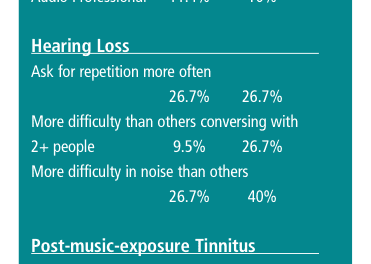Unitron, Kitchener, Ontario, Canada, reports the top-line findings of an independent Best Practices Benchmarking Study commissioned by the company to examine business practices of hearing care clinics across the United States.
Final findings of the quantitative research survey, which analyzed the operating profiles, business development, and marketing activities of 300 independent audiology practices, are expected to offer insight and opportunities to hearing care professionals in their short- and long-term business planning, according to the company.
Brian Taylor, manager of professional services, Unitron USA, says the study provides an in-depth understanding of the company’s hearing care professional customers, and the challenges and opportunities—such as attracting/retaining customers, determining more profitable service practices, and understanding the hard and soft costs of their business. He says the company can use the data to support customers with purpose-driven tools, above and beyond products—to address challenges and opportunities.
“Equally important, by providing the findings directly to our customers—most of whom operate independently and therefore don’t have the means to compare key business metrics against industry best practices—we’re able to share what others are doing successfully," Taylor says, according to Unitron. "Independent practitioners can then incorporate these practices into their own performance evaluation and goal-setting. It’s a very beneficial collaboration for everyone.”
Unitron says it plans to communicate the complete study results to its hearing care professional customers in the fall, but it has previewed some key findings:
• Marketing Plans Make a Difference: approximately 53% of participants indicated their practices develop and follow a marketing plan. The vast majority of those with a marketing plan expressed greater optimism and satisfaction with their long–term business prospects than those practices operating without a formal plan.
• Key Metrics: Reality Versus Perception: the study revealed a lack of correspondence between how the majority of business owners believed their practices were performing against key financial metrics (such as cost of goods; break-even point, returns, and product mix) and their actual performance. This disconnect presents an excellent opportunity for many practices to closely measure and manage their costs revenue and productivity.
• Finding Time for Face Time: with consumer research indicating a major correlation between time spent with the customer and overall customer satisfaction, the survey revealed a huge opportunity for most practices; results indicated that many clinics could allocate more one-on-one customer time by analyzing and adapting how their in-clinic time is spent.
The study results also clearly pointed to the economy as a No. 1 concern for hearing care practices, the company says. Taylor says the study results can assist the more than 10,000 private hearing care practices in the United States to establish ongoing tracking and performance evaluation of their key metrics to measurably improve results.
The study results have a margin of error of +/- 5.6% at the 95% confidence interval, according to the company. Data was collected in November and December 2008. The study was conducted by PMG Intelligence, Waterloo, Ontario, a strategic intelligence firm.
[Source: Unitron]




